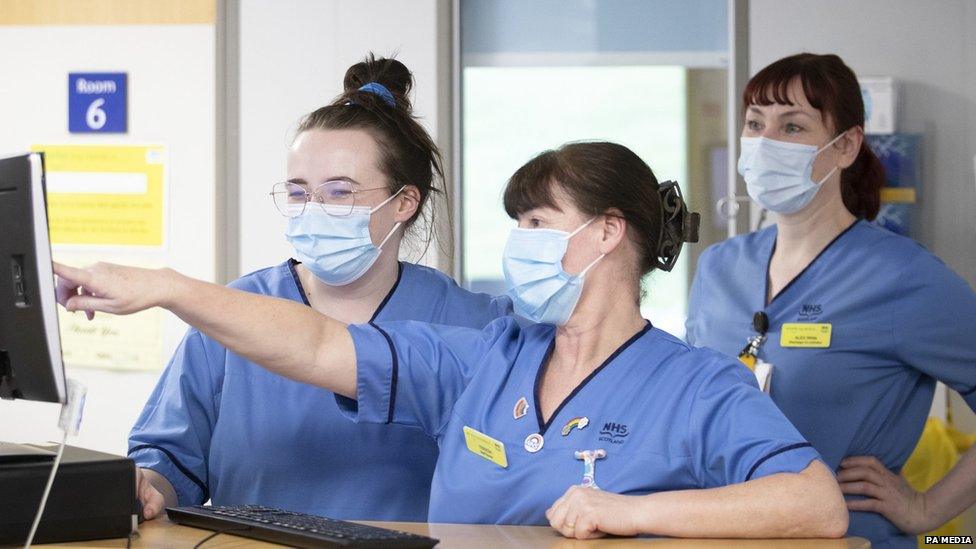Teachers back on picket lines for sixth time since February
- Published

The government said a "good offer" had been made to teachers
Children and parents in Yorkshire and Lincolnshire have faced more disruption as teachers returned to picket lines.
Many schools have either been shut or partially closed as National Education Union (NEU) members walked out for the sixth time since February.
In Leeds, teachers were joined by other striking workers, including nurses, in solidarity with their walkout.
The government said a "good offer" had been made to teachers over pay, but NEU members dismissed it as "insulting".
Dozens of people turned out for the rally at Millennium Square in Leeds before walking to Leeds General Infirmary where they protested along with members of the Royal College of Nursing.
Lisa Walsh, joint district and branch secretary for the NEU in Leeds, said members were "genuinely sorry" for the disruption caused, but they had no choice but to fight for a "better funded education service".
Teachers' pay has dropped by 11% between 2010 and 2022, after taking inflation into account, according to the Institute for Fiscal Studies.
Unions want above-inflation increases, plus extra money to ensure any pay rises do not come from schools' existing budgets.
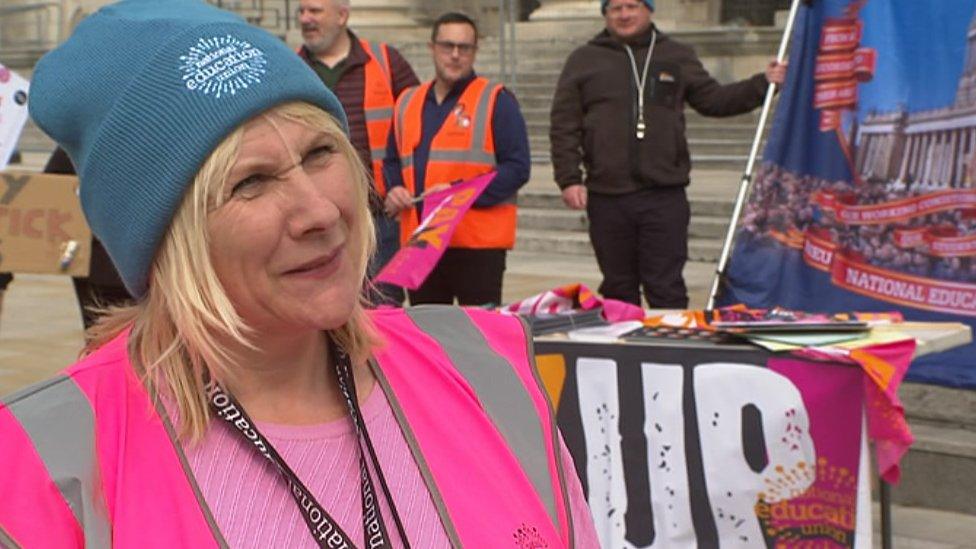
Lisa Walsh, from the NEU in Leeds, said striking teachers were "genuinely sorry" for the disruption
After intensive talks last month, the government offered an additional one-off payment of £1,000.
It also increased the offer for most teachers next year to 4.3%, with starting salaries reaching £30,000.
But all four unions involved in the dispute rejected the offer. They said it was still not fully funded, meaning schools would have had to make cuts elsewhere to afford it.
Ms Wright said the offer was not acceptable because school budgets were already "in dire straits".
She added: "It would mean there'd be less money for resources for children, less money for teaching assistant and quite possibly redundancies on the back of it."
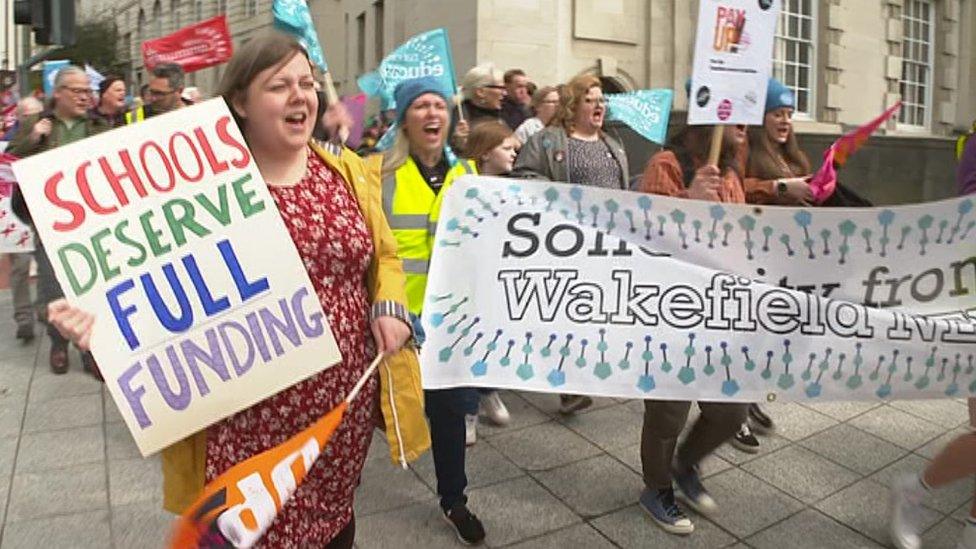
Striking teachers walked to Leeds General Infirmary where they protested along with Royal College of Nursing members
Andrew Campbell, a special needs teacher at Wykebeck Primary School in Gipton, said budgets were already tight and he had been without a working white board in his classroom for two months.
Mr Campbell said he considered himself "lucky" because his school had a special needs provision.
He said next year, however, Year 7 pupils from secondary school might have to be placed within his primary school class because there was not enough provision elsewhere to offer help for pupils with special needs.
Discussing the impact the strike would have on his pupils, Mr Campell said the majority would still be in school.
He added: "As special needs, it's really tough because special needs pupils need routine...but we've had no pushback from parents. They know why we need to do this."
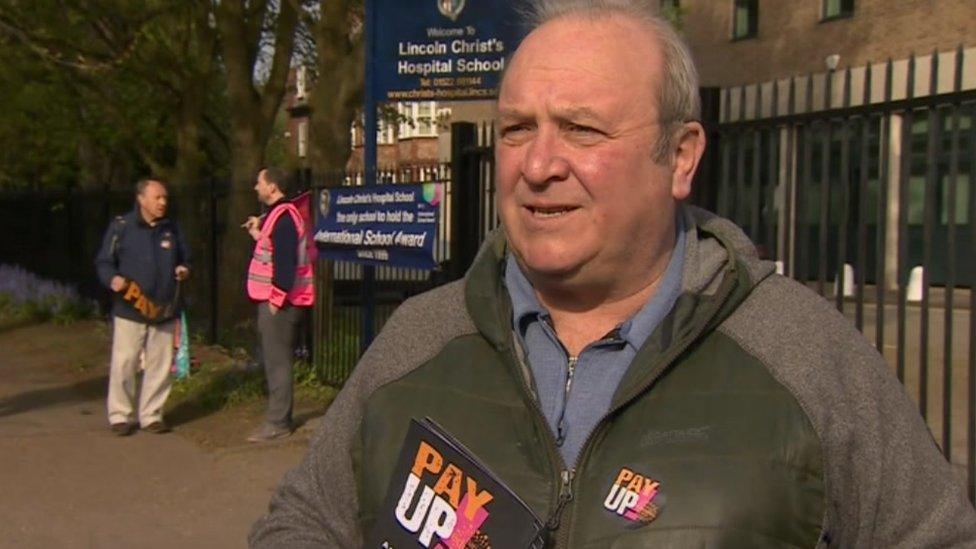
NEU secretary Ken Rustidge said he wanted to see serious negotiation with the government
In Lincoln, teachers joined a picket line outside Lincoln Christ's Hospital School, led by NEU secretary Ken Rustidge.
Mr Rustidge said the government "needed to listen" and engage in "meaningful talks".
He added: "There is a recruitment and retention crisis and my members are telling me they are being forced to teach subjects they are not specialists in, and that's not good for the pupils."
He said he "sincerely hoped" it would not get to the point where further strike action would take place over summer, adding: "We want to see some serious negotiations so we can move forward in everyone's interests."
The decision on teachers' pay in England for next year has been passed to the School Teachers' Review Body.
A spokesperson for the Department for Education said: "Children's education has always been our absolute priority and they should be in classrooms where they belong.
"We have made a fair and reasonable teacher pay offer to the unions, which recognises teachers' hard work and commitment as well as delivering an additional £2bn in funding for schools, which they asked for."

Follow BBC Yorkshire on Facebook, external, Twitter, external and Instagram, external. Send your story ideas to yorkslincs.news@bbc.co.uk, external
Related topics
- Published2 May 2023
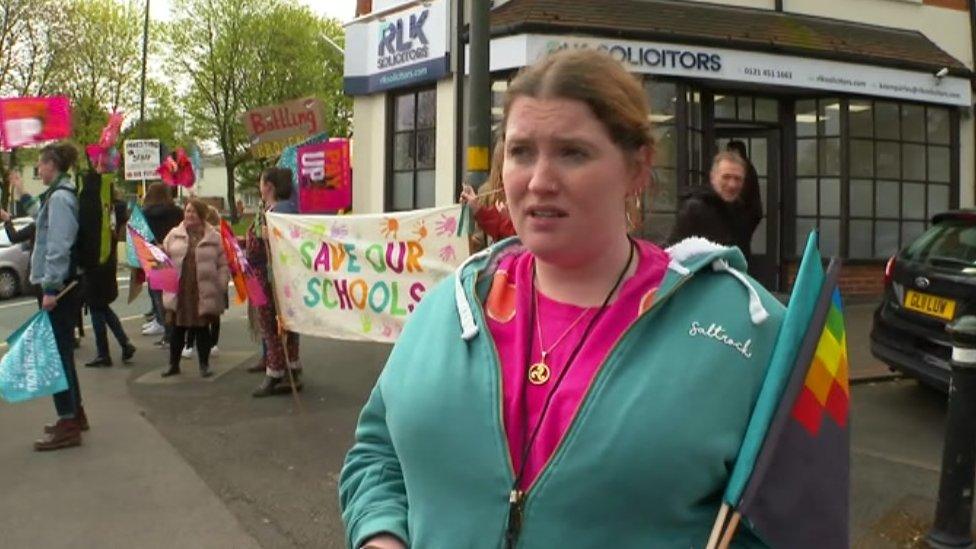
- Published15 April
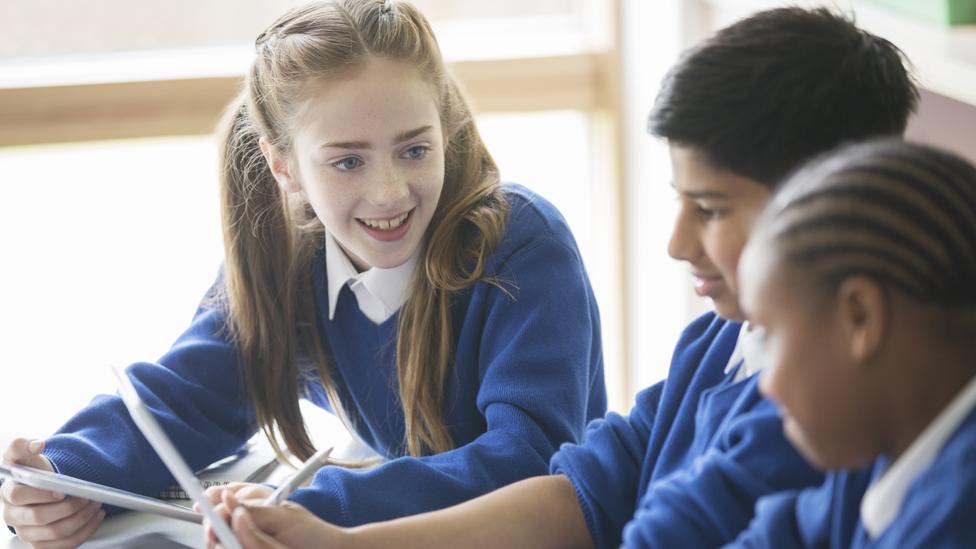
- Published29 April 2023
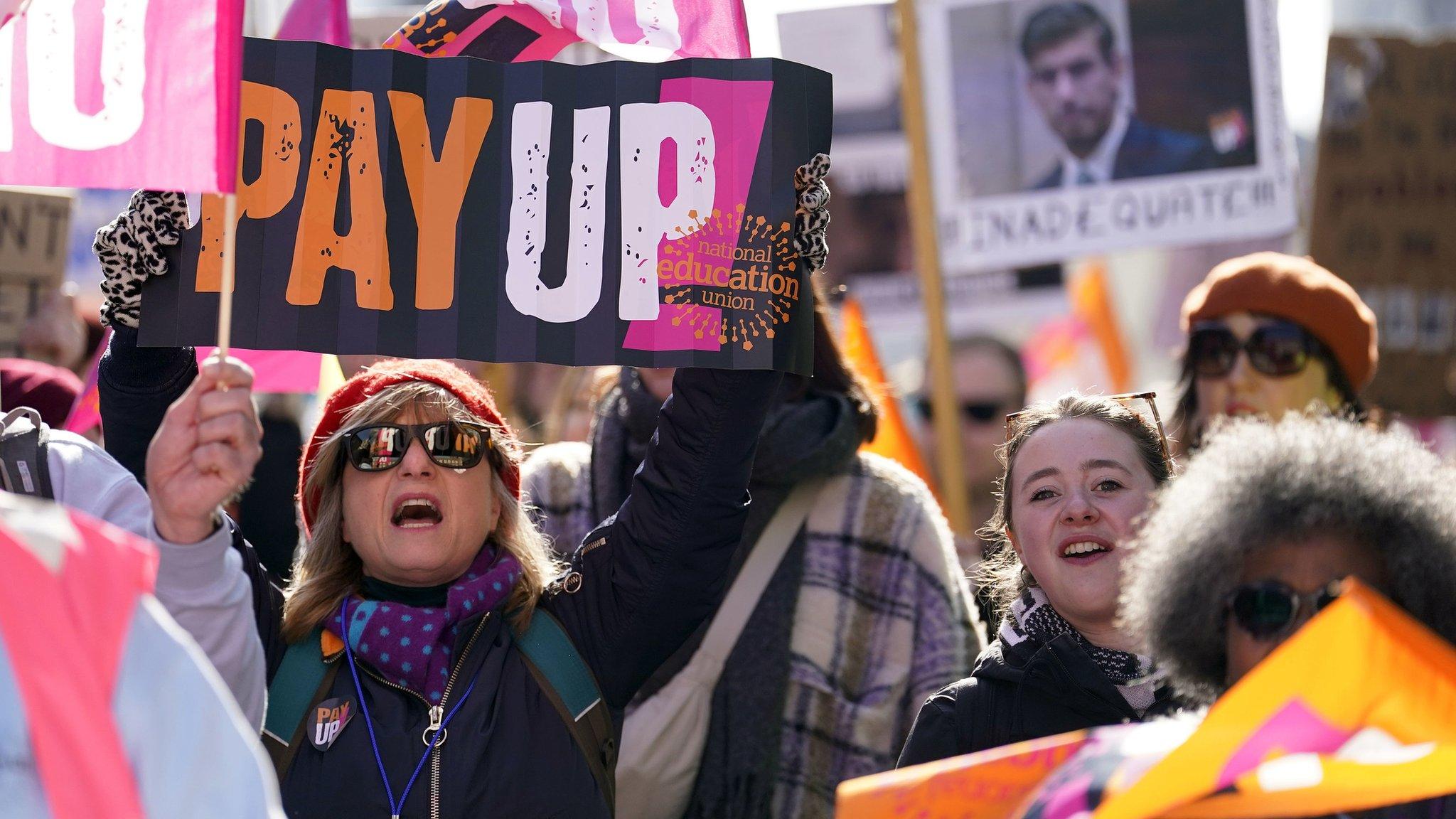
- Published16 March 2023
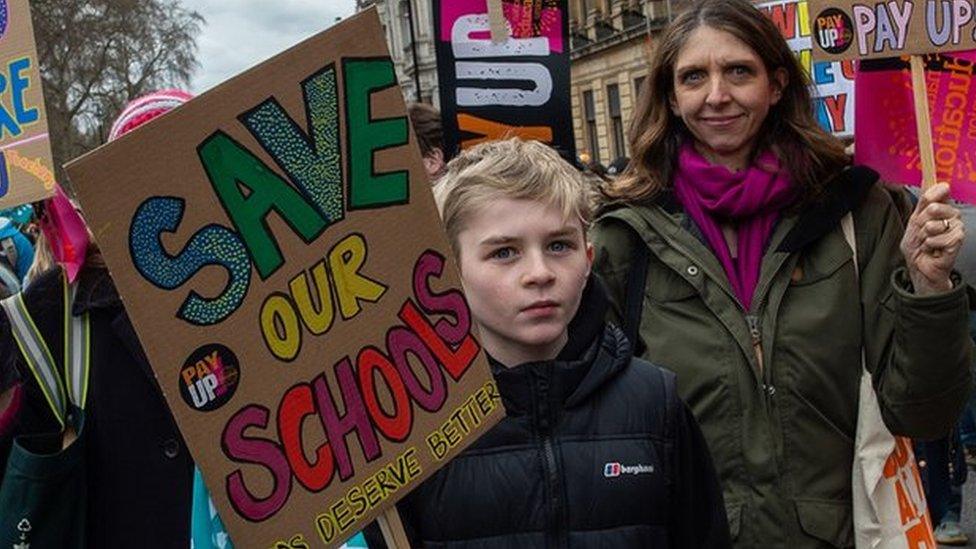
- Published19 July 2022
